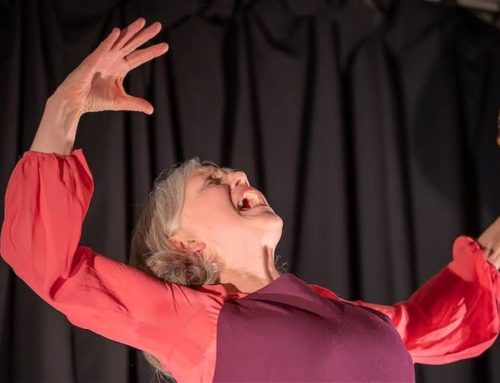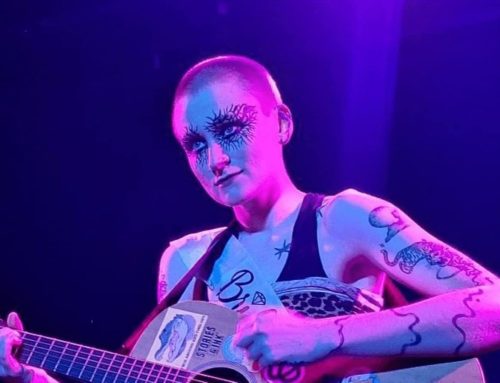Cesca Echlin’s exceptional debut play, Looking For Giants, is a provocative and disturbing psychological study of a mind imprisoned within a world of complex unreality. The unnamed central character goes to school and university, travels, has a job and friends, and uses dating apps. Beyond that, what we learn about her emerges almost entirely from descriptions of troubling, damaged liaisons with men, connections whose presence have “left invisible marks” on her psyche. Prepare for an intense, riveting hour spent inside the disturbing fantasies that occupy an injured and imprisoned mind.
Echlin’s episodic narrative concerns itself with three relationships. The first is the character’s interactions with the university lecturer supervising her undergraduate dissertation. Brusque and dismissive, his words needle her “like the tip of a recently sharpened knife”. Furious at the academic’s casual brutality, but also sexually aroused, she decides to stand up to him. “There you are, finally”, is how she summarises his contemptuous response to her provocations. The second is with an older man whom she encounters on a dating app. They exchange sexual fantasies and dark porn. He ghosts her unexpectedly when she send her photo, a rejection she justifies, eroticises, and admires. In the third we go back to the character’s schooldays and her meeting with a boy she comes to idolise. She responds to his refusal to have sex by taunting him like a captive animal. Eventually he leaves too.
In each relationship the character sheds some aspect of her femininity to find ways of relating to men. For her, these connections are a game in which she adopts roles in opposition to, indeed mostly in submission to, men. Her male interlocuters are challenges to be overcome, but also sexual objects in whose every rejection she find bittersweet, erotic solace. Imprisoned in a static world of illusion, she claims “only inaction can guard something this precious”.
Abby McCann is a revelation in the central role. Bright, quirky, with a face that flits at lightning speed from despair to anger, to uncertainty and impish mischievousness. It is a performance endowed with astonishing and charismatic physicality.
Echlin’s gripping dialogue is written in third person with a kind of stream-of-consciousness randomness, actively distancing the self-absorbed and self-obsessed character from the events she describes. There are no props, save a stool and a microphone which McCann uses to indicate when other characters, mainly men, are talking. She wears a simple black dress. This is a closed, contained, threatening space. Remarkable, inspiring, work.
Writer and Director: Cesca Echlin
More Recent Reviews
Milked. White Bear Theatre.
Written in 2013 and first seen a decade ago in a production at the Soho Theatre, Simon Longman’s slice [...]
Fresh Mountain Air. Drayton Arms Theatre.
Lana Del Rey’s ode to female unity and resilience, God Bless America And All the Beautiful Women In It, [...]
Rodney Black: Who Cares? It’s Working. Lion and Unicorn Theatre.
Rodney Black is a tacky small-time comedian with a venal manager and a taste for nasty misogynism. “I’m a [...]






